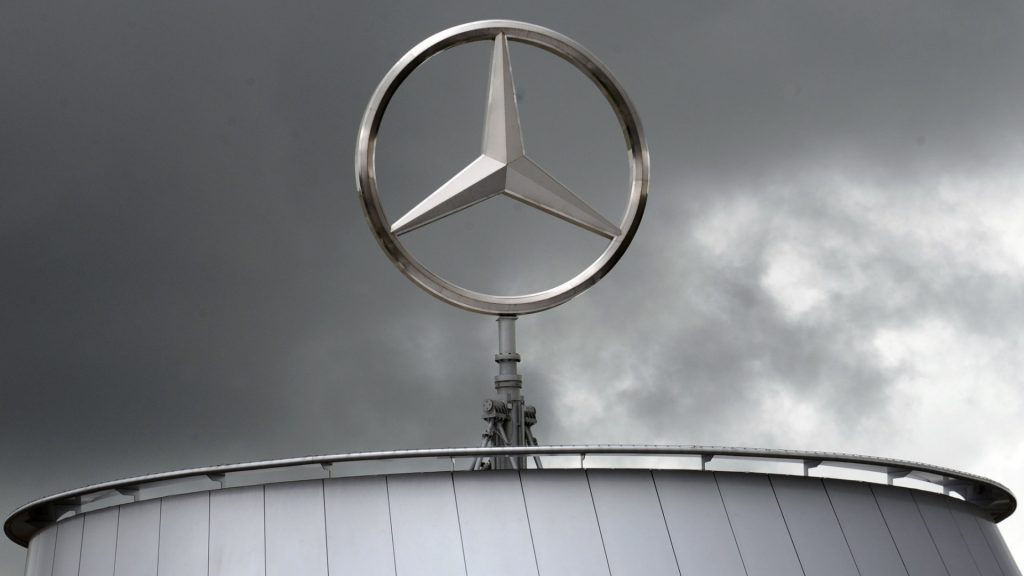Analytics
As of 09/13/2022 4:29 PM
The Stuttgart District Court has dismissed a climate lawsuit against Mercedes-Benz. It is up to the legislature to create a framework to combat climate change.
Can people demand more climate protection from a global company? This was the main question in the Stuttgart climate process. Jürgen Resch, Barbara Metz, and Sacha Muller-Kreiner sued as individuals on procedural grounds. But behind them is a powerful association: German Environmental Aid (DUH). The three federal administrators knew their “house” was behind them when they invoked their rights in the Stuttgart District Court.
The concrete goals they pursued and continue to pursue in their lawsuit are ambitious: the dedicated environmentalists want to achieve an environmentally friendly conversion of the Stuttgart car factory – imposed in the lawsuit. Mercedes-Benz must commit to stop selling conventional combustion engines from the end of 2030.
According to Jürgen Resch, Mercedes-Benz is violating the fundamental right to climate protection with its climate-damaging fleet of vehicles. DUH has calculated that CO2 emissions from Mercedes cars sold in 2021 will exceed those of countries such as Norway or Portugal by more than 65 million tons. However, the lawsuit was initially unsuccessful.
Court affirms the principle of separation of powers
Accompanied by a great deal of media coverage, prosecutors presented Mercedes-Benz before the Stuttgart District Court. Negotiations took place in July. Now the result: the lawsuit was dismissed. The verbal justification for the verdict was rather brief.
The main argument: The legislature, not the court, should decide what concrete measures private companies should take to improve climate protection. This comes from the principle of separation of powers. Thus the court emphasizes the division of tasks between politics and the judiciary. One also notes from the logic: This is not a direct lawsuit against the state – as with the successful 2021 Karlsruhe climate lawsuit – but against a private company in a civil court. There, burden of proof questions play a different role.
For the plaintiffs to succeed, they had to explain and prove that their rights had been violated. However, according to the court, it has not yet been predicted what future government actions will be taken to reduce carbon dioxide emissions. How does this affect the rights of plaintiffs?
Various climatic processes have already succeeded
The idea of fighting for more climate protection in court is not in itself doomed. Because in the recent past, many climate-related lawsuits have been successful. However, the specific circumstances and direction were not the same as in Stuttgart.
In April 2021, the Federal Constitutional Court announced the so-called “climate decision”. At that time, Karlsruhe partially granted a request from young farmers from the North Sea island of Bellwerm. They have seen and continue to see that climate change threatens their livelihoods. However, their lawsuit was directed against the state and not against a private company. The Federal Constitutional Court made its decision, instructing the legislature to improve legal regulations. Climate change and its dangerous consequences threaten the freedom of future generations at various levels.
That is why it must now be regulated so clearly and precisely in terms of how the federal government intends to comply with binding climate targets. And beyond 2030. The country has a lot of leeway here, but urgently needed decisions generally should not be put off into the future. Because then, quite simply, there will be less and less air to be able to act effectively. This means that the freedoms of future generations will have to be curtailed extensively.
Legislators who do not deal with the pressing issues of today are a burden on the liberties of future generations. This does not comply with the statute. The big difference from the Stuttgart procedure: in Karlsruhe, the state was claimed. Because against him, citizens can command fundamental rights directly in the field. Today’s ruling in Stuttgart shows that these principles cannot simply be transferred 1:1 into a lawsuit against a company.
Shortly thereafter, a local court in the Netherlands sentenced a private company to do more climate protection. After the decision in May 2021, oil and natural gas company Shell must cut its carbon dioxide emissions by 45 percent compared to 2019. Thousands of Dutch have complained to environmental organizations. The court in The Hague followed your argument that the multinational oil company had not done enough to protect the climate.
The procedures in Stuttgart have not yet been completed
Overall, today’s ruling in the Stuttgart proceedings shows that the legal obstacles to climate-related lawsuits against companies are high under German law. The sensational ruling from Holland cannot be transferred one-to-one. At the same time, the Stuttgart verdict was not the last word on these issues, but only the beginning. It concerns a new legal territory, which the following lecturers will also study closely. Nothing has been set in stone yet.
DUH has already announced that it will resume. Accordingly, the proceedings will continue in the Higher Regional Court.
W: The proceedings in Stuttgart are not the only ones of this kind, in Detmold the regional court is currently negotiating the lawsuit brought by an organic farmer against Volkswagen. Backed by Greenpeace, the farmer wants to oblige the auto giant in Lower Saxony to show more commitment to climate protection.
Unlike in Stuttgart, the oral hearing is still going on here. The court there had initially indicated doubts about the merits of the lawsuit, but has now set another date in February 2022. Other lawsuits are pending in Braunschweig and Munich.

“Tv expert. Hardcore creator. Extreme music fan. Lifelong twitter geek. Certified travel enthusiast. Baconaholic. Pop culture nerd. Reader. Freelance student.”








More Stories
BVB could finish sixth in the Bundesliga in the Champions League
Discover our recipe for the perfect strawberry chocolate cake
A magical week for Otar Ketishvili on the pitch and in the dressing room